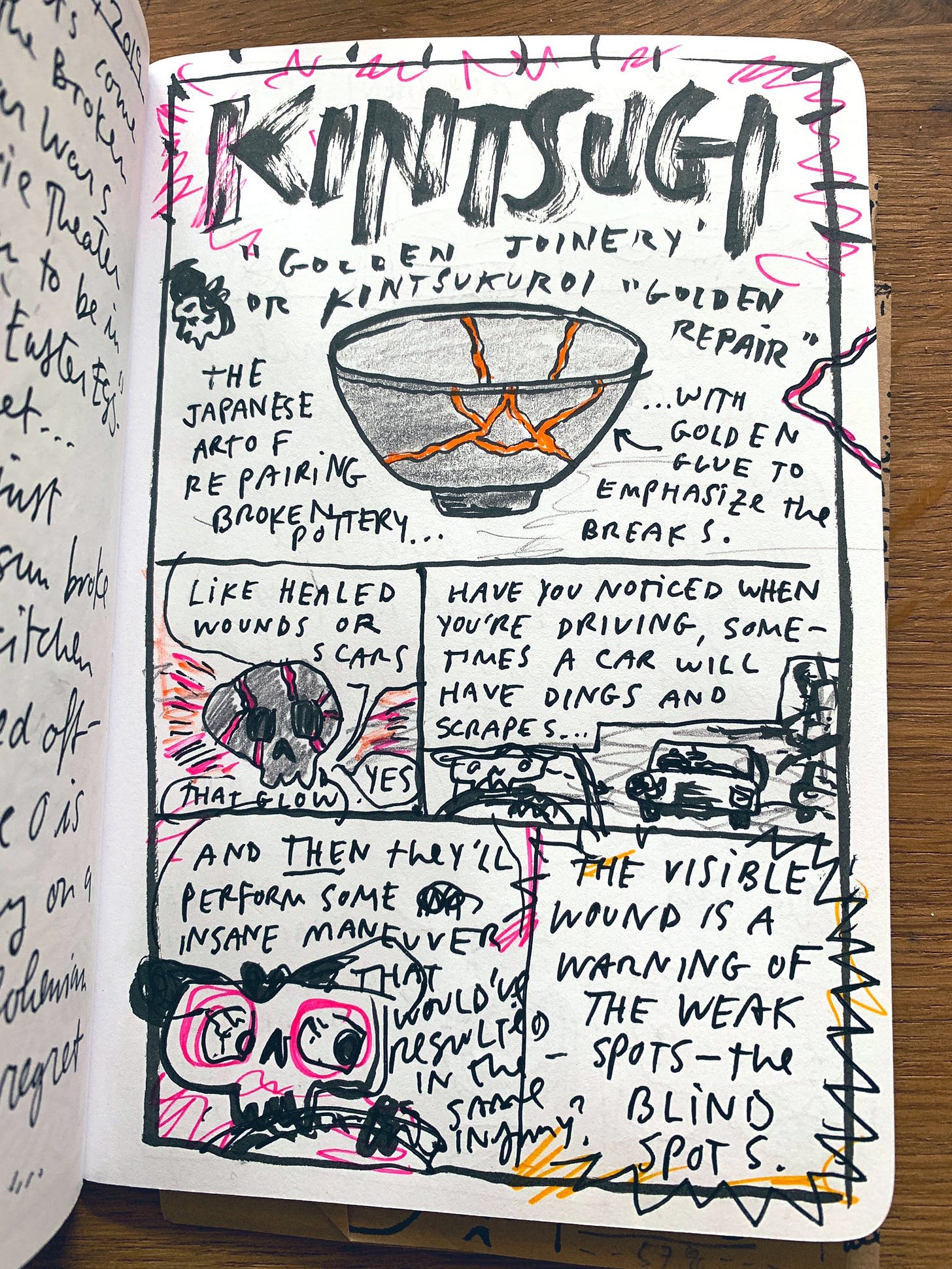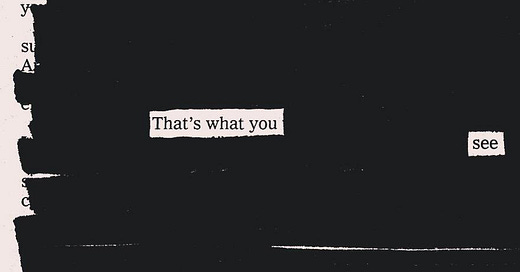“Many an object is not seen, though it falls within the range of our visual ray, because it does not come within the range of our intellectual ray, i.e., we are not looking for it. So, in the largest sense, we find only the world we look for.”
—Henry David Thoreau, journal, July 2, 1857
Hey y’all,
The writer Shirley Jackson is probably best known for her fiction, like “The Lottery” or We Have Always Lived In The Castle, but I really love her memoir and non-fiction. Life Among The Savages, for example, is a 1952 collection of hilarious pieces she wrote for various women’s magazines.
One of Jackson’s pieces I keep returning to is her lecture, “Memory and Delusion” collected in the book, Let Me Tell You. A few weeks ago, I shared a paragraph from it about how a writer is never not working. Here is the story she tells next:
I was playing bridge one evening with a musician, a chemistry teacher, and a painter when, during a particularly tense hand, a large porcelain bowl that we kept on the piano suddenly shattered. After we had all calmed ourselves down, we found four completely individual reactions. Looking at all the tiny scattered pieces, I thought that I had never realized before how final a metaphor a broken bowl could be. The chemistry teacher pointed out that someone had emptied an ashtray into the bowl with a cigarette still burning, and of course the heat had shattered the bowl. The painter said that the green of the bowl was deepened when the light caught the small pieces. The musician said that the sound it made when it broke was a G sharp. Then we went back and finished our bridge hand.

In one paragraph, Jackson illustrates one of the great philosophical insights, articulated by William Blake: “As a man is, so he sees.”
What you do determines what kind of attention you pay to the world. What kind of attention you pay to the world determines what you find in it.
Another William, William James, put it this way:
Millions of items of the outward order are present to my senses which never properly enter into my experience. Why? Because they have no interest for me. My experience is what I agree to attend to. Only those items which I notice shape my mind - without selective interest, experience is an utter chaos.
“The question is not what you look at,” Thoreau wrote in his journal, “but what you see.”1
Keep reading with a 7-day free trial
Subscribe to Austin Kleon to keep reading this post and get 7 days of free access to the full post archives.





